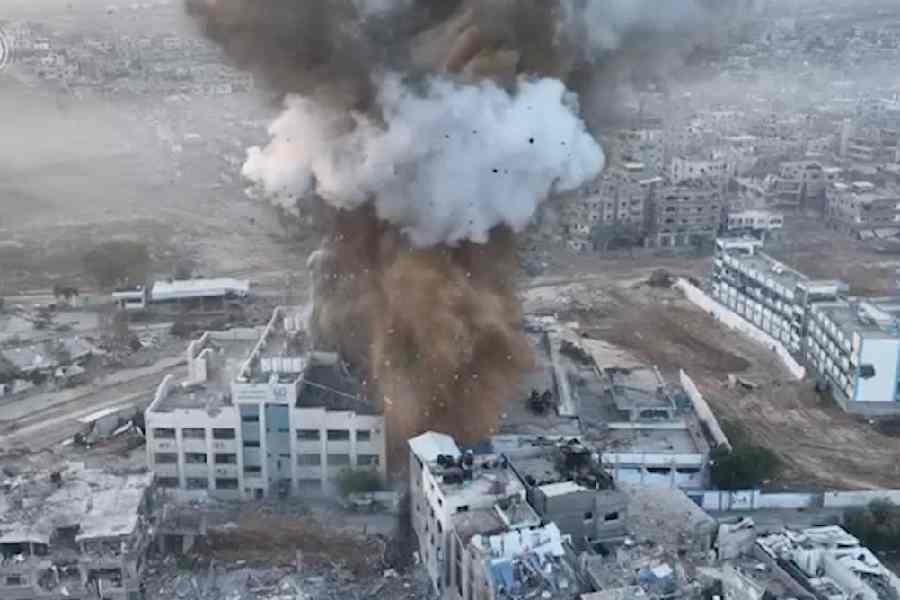Israeli officials obtained Hamas’ battle plan for the October 7 terrorist attack more than a year before it happened, documents, emails and interviews show. But Israeli military and intelligence officials dismissed the plan as aspirational, considering it too difficult for Hamas to carry out.
The approximately 40-page document, which Israeli authorities code-named “Jericho Wall”, outlined, point by point, exactly the kind of devastating invasion that led to the deaths of about 1,200 people.
The translated document, which was reviewed by The New York Times, did not set a date for the attack but described a methodical assault designed to overwhelm the fortifications around the Gaza Strip, take over Israeli cities and storm key military bases, including a division headquarters.
Hamas followed the blueprint with shocking precision. The document called for a barrage of rockets at the outset of the attack, drones to knock out the security cameras and automated machine guns along the border, and gunmen to pour into Israel en masse in paragliders, on motorcycles and foot — all of which happened on October 7.
The plan also included details about the location and size of Israeli military forces, communication hubs and other sensitive information, raising questions about how Hamas gathered its intelligence and whether there were leaks inside the Israeli security establishment.
The document circulated widely among Israeli military and intelligence leaders, but experts determined that an attack of that scale and ambition was beyond Hamas’ capabilities, according to documents and officials.
It is unclear whether Prime Minister Benjamin Netanyahu or other top political leaders saw the document, as well.
Last year, shortly after the document was obtained, officials in the Israeli military’s Gaza division, which is responsible for defending the border with Gaza, said Hamas’ intentions were unclear.
“It is not yet possible to determine whether the plan has been fully accepted and how it will be manifested,” read a military assessment reviewed by the Times.
Then, in July, just three months before the attacks, a veteran analyst with Unit 8200, Israel’s signals intelligence agency, warned that Hamas had conducted an intense, day-long training exercise that appeared similar to what was outlined in the blueprint.
But a colonel in the Gaza division brushed off her concerns, according to encrypted emails viewed by the Times.
“I utterly refute that the scenario is imaginary,” the analyst wrote in the email exchanges. The Hamas training exercise, she said, fully matched “the content of Jericho Wall”.
“It is a plan designed to start a war,” she added. “It’s not just a raid on a village.”
Officials privately concede that had the military taken these warnings seriously and redirected significant reinforcements to the south, where Hamas attacked, Israel could have blunted the attacks or possibly even prevented them.
Instead, the Israeli military was unprepared as terrorists streamed out of the Gaza Strip. It was the deadliest day in Israel’s history.
Israeli security officials have already acknowledged that they failed to protect the country, and the government is expected to assemble a commission to study the events leading up to the attacks.
The Jericho Wall document lays bare a years-long cascade of missteps that culminated in what officials now regard as the worst Israeli intelligence failure since the surprise attack that led to the Arab-Israeli war of 1973.
Underpinning all these failures was a single, fatally inaccurate belief that Hamas lacked the capability to attack and would not dare to do so. That belief was so ingrained in the Israeli government, officials said, that they disregarded growing evidence to the contrary.
The Israeli military and the Israeli Security Agency, which is in charge of counterterrorism in Gaza, declined to comment.
Officials would not say how they obtained the Jericho Wall document, but it was among several versions of attack plans collected over the years.
New York Times News Service










